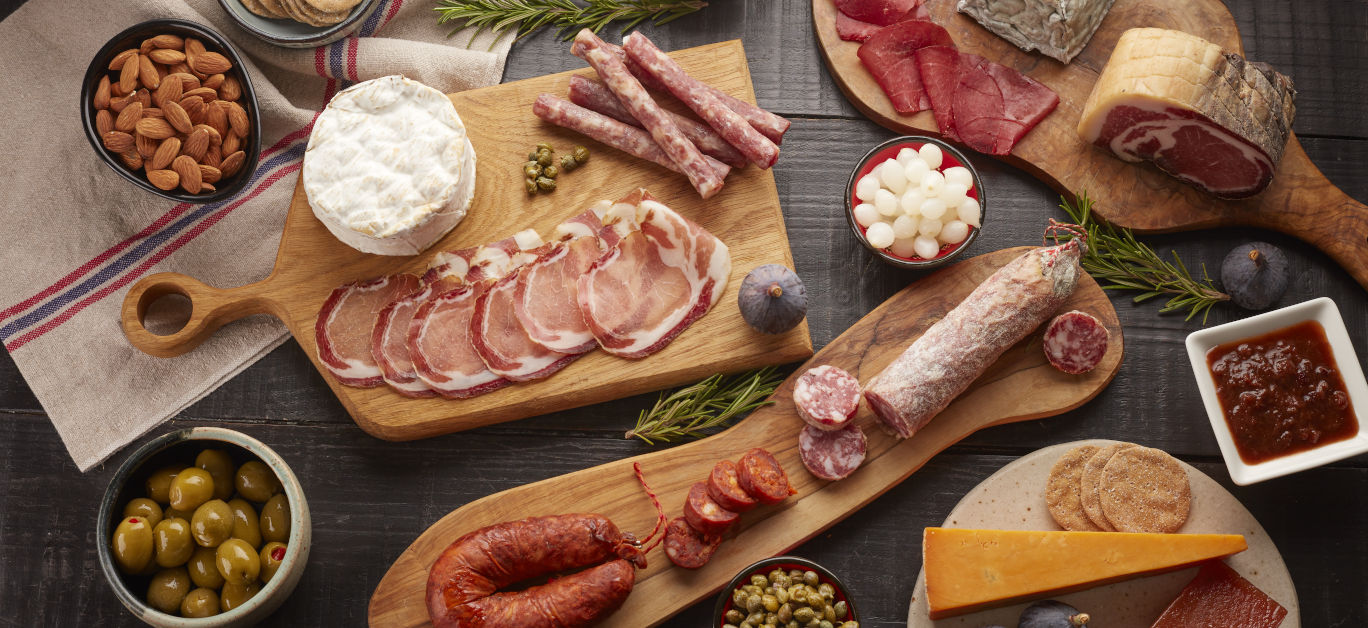The number of food smokers is increasing in London and the Home Counties, and where can you expect to see a lot of salmon, trout, sausage and ham smokers learning how to turn these delicious foods into delectable, smoky delights? The garden shed, of course!
Ross Mitchell and London Smoke and Cure
Torquay-born Ross Mitchell began smoking in the shed at the bottom of his garden. The son of two driving instructors, the Bath University graduate now encourages others to take up smoking and is available to teach them how to smoke food properly and luxuriously.
Ross is a Doctor of Philosophy (Ph.D) in Biomechanics and holds a Master’s degree in Innovation and Engineering Design. He used to work as a neighbourhood delivery lead at Lambeth Council, regeneration manager at Merton Council and partnership coordinator at the Energy Saving Trust. He now runs London Smoke and Cure private smoking schools in the London. Well-sharpened boning tools are provided.
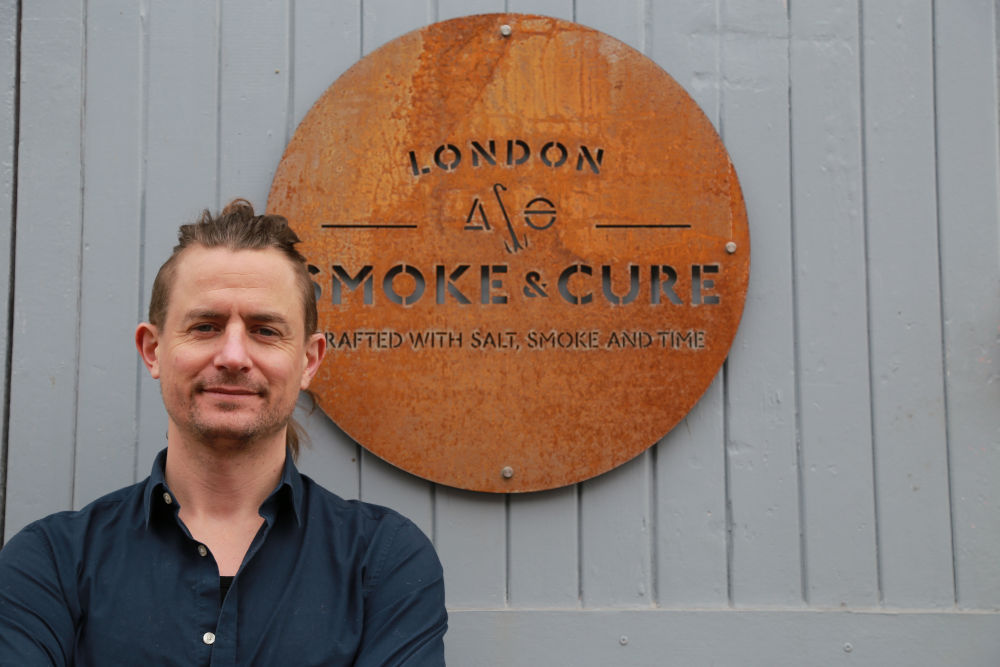
Ross, who uses his own blend of oak and beech wood and enjoys smoking air-dried sausages, said: “The most common error a student will make is to over-smoke. Smoke density is important. A lighter smoke for a longer duration to avoid bitter notes and to give a more elegant depth of flavour.
“Our workshops are run every two weeks at our production unit in Streatham. They cover a range of traditional curing skills and techniques with a focus on customers rolling their sleeves up and getting full access to what is being taught.
What attracted Ross to food smoking in the first place? He explained: “I was initially drawn to smoking and curing because of the tradition and the craft that it represents, and because it stands in contrast to a modern world that can feel like it’s getting too complicated and fast-paced.
“We’ve only ever learned by our own process of trial and experimentation, the upside of which is that we’ve not been heavily influenced by industry norms and practices and as such have developed products that are uniquely ours. We were the first, for example, to really focus on sashimi-grade smoked salmon, which is now increasingly being copied.”
In 2015, Ross founded London Smoke and Cure and it began with an ambition to bring people together around a shared love of sustainably sourced, handcrafted, cured and smoked food. Now based in a cobbled mews in south London and employing a staff of 13, some of his ambient produce can be found in Selfridges and other outlets as well as the Crystal Palace Food Market.
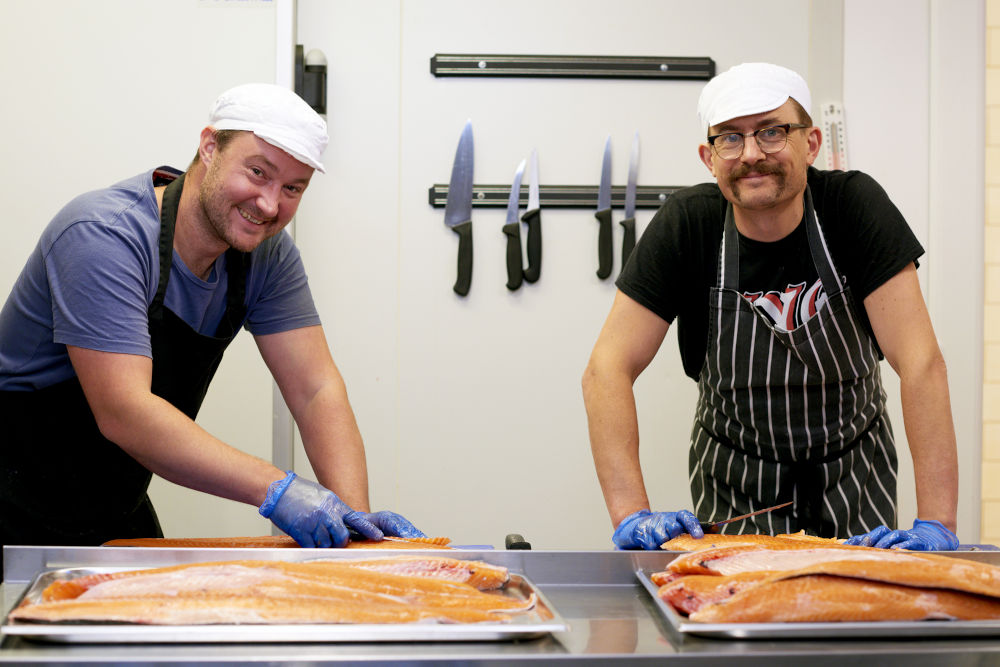
“Producing whole muscles or salami, we’ve developed a beautifully complementary range of products from snacking sticks through to whole aged hams. All of our products start their journey being gently cured in salts and sugars and a delicate balance of natural herbs and spices. Whole muscles like our London Standard Coppa are then air-dried in our ageing room for up to five months to intensify their flavour and make them perfect for slicing thinly and sharing with friends.”
Recently, the company has won Great Taste Awards in five categories and won at the British Cheese and British Charcuterie Awards.
“The British charcuterie industry is on the cusp of a real boom and we’re proud to have played a real part in that. There’s growing demand for quality British produce, our path has been cleared somewhat with the growth we’ve seen with craft brewers, and it has been great to see British producers put their unique stamp on the future.”
London Smoke and Cure uses native breed Gloucester Old Spot pork and ex-dairy beef from Mount Grace Farm in North Yorkshire.
“We’ve recently discovered the under-the-radar wine growing region of Uteil-Requena outside Valencia in Spain and have been stunned by how well some of their grapes pair with our product. We recently paired an Aranleon Solo Tinto 2020 with an abundant charcuterie platter and retired that evening very happy,” added Ross.
James Eagle and The Pished Fish
The discovery of the ancient Scandi art of curing spawned The Pished Fish and James Eagle’s ‘intriguing, thoughtfully’ smoked salmon.
He found dill dull, spruce twigs hard to come by and high street salmon far too sober for his liking, preferring his own Sussex soused salmon.
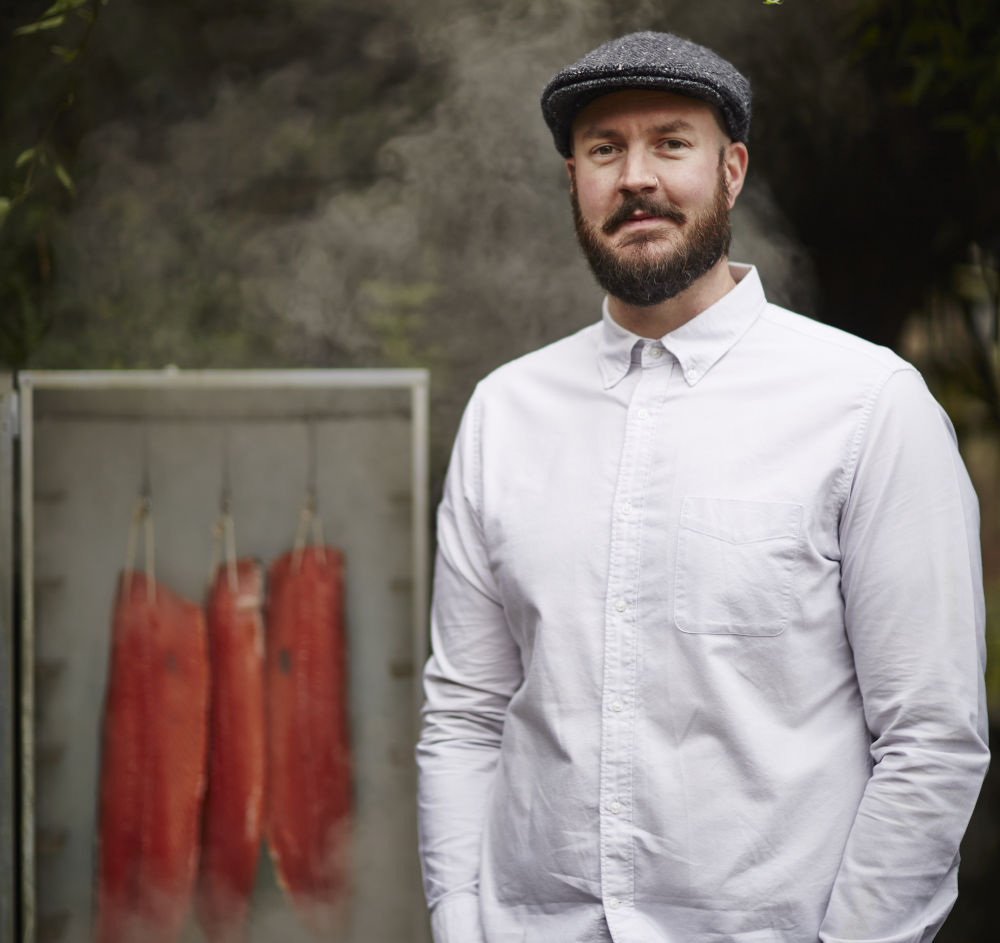
“Business trips to Norway inspired me,” says the self-confessed ‘afishianado’ who once sold VE (Ventouse vacuum extraction) birthing devices. “As a ‘keen’ home cook, I had a crack at making gravlax at home, melding and merging all manner of intriguing ingredients, dispatching samples far and wide to friends and family. A business followed.
“It all started, quite literally, from my rickety garden shed in Camberwell,” continues Kenya-born, Yorkshire-raised James. “Travelling extensively through Scandinavia as part of a medical sales team, I became a big fan of all the different gravadlax flavours that were on offer in the restaurants there, served for breakfast, lunch and dinner
“I started smoking in an old filing cabinet and I developed my own base recipe. My wife, Hermione, then bought me a Green Egg BBQ to use as a smoker to play around a bit more with the different flavours. It quickly became an obsession. My trips to Billingsgate fish market became more and more expensive, and I started giving an awful lot of cured fish away to friends and family.
“One thing that became apparent was that people were a lot more receptive to smoked salmon than simply cured, unsmoked salmon.”
To keep up with demand, James built himself a new smokehouse out of two shipping containers in a field at his father’s house in Upper Dicker, near Lewes. That was in 2017 and, in 2019, they moved into Smokehouse version 4.0, located in an old barn.
“The simple thinking behind The Pished Fish is to showcase salmon’s more audacious, booze-infused ambitions by moving away from salmon’s historical ‘safe, mild-mannered’ fish reputation by encouraging the undisputed king of the North Sea to cast off its inhibitions and showcase its more outlandish, rock and roll persona by pairing it with an array of high-quality spirits and botanicals before being smoked in small batches over a variety of aromatic woods.”
The Pished Fish now has listings with Fortnum and Mason and Selfridges. “Great food is as much about a sense of involvement as it is quality.”
The core range comprises Augustus Gloop (blueberries and vodka), Sozzled Santa (brandy, cinnamon, clementines and nutmeg), Dark and Stormy (rum, ginger lime zest and agave honey) and Designated Driver (no alcoholic element, merely botanicals). For trout lovers, there is also Little Cousin Francois, where fish meets fennel and Pernod. As well as bourbon and honey.
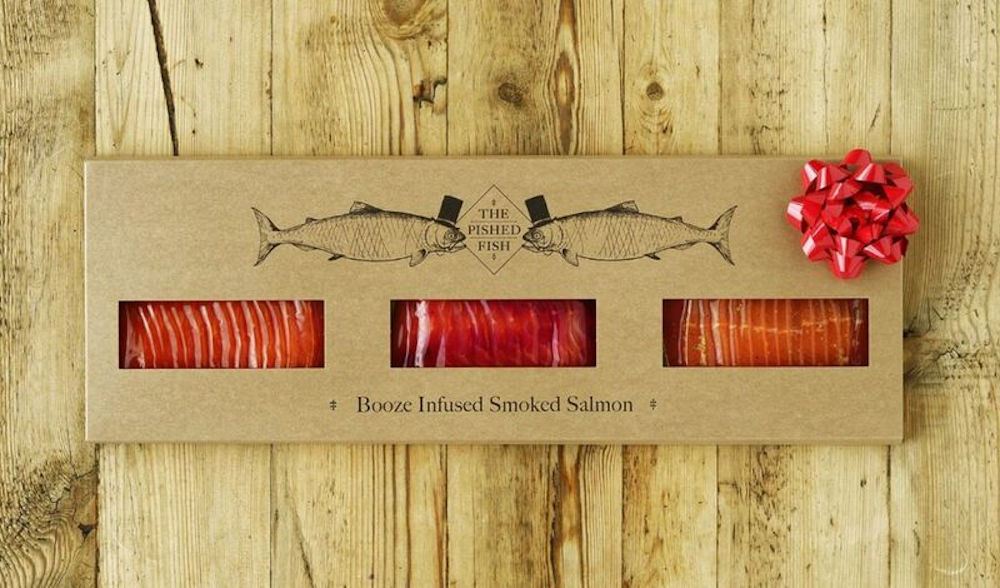
“Lockdown had resulted in people being stuck at homes seeking out new, healthier living. permissible treats that didn’t skimp on indulgence. We’d been thrown a lifeline and we weren’t going to waste it. We invested in our online shop, prioritised new product development like Gilltong. Think salmon biltong- smoked salmon, hand sliced, marinated in a teriyaki honey Tabasco sauce.”
Sourcing through Billingsgate market, The Pished Fish uses on the leanest, sushi-grade, slow-cured Scottish salmon from RSPCA-assured or Label Rouge high welfare farms. The salmon is filleted and slow cured in a blend of Dead Sea salt and demerara sugar which firms up the flesh and gives a meaty, non-greasy texture.
“The dream is to be stocked in high quality, independent retailers who support small artisan producers like ourselves” added James.
James applied for help to fund a mobile chiller van and received the support from Business East Sussex. The Pished Fish’s Christmas Collection box includes Erik The Red (a combination of Aquavit, beetroot, star anise, juniper, apple and alder smoke) as well as Classic featuring an infusion of whisky, maple syrup and oak smoke.
“We’re biased with wines as we’d only suggest using our friends Sussex sparkling from Fox and Fox vineyard in Mayfield. Our new £64.99 Full Monty served as a smorgasbord would get my thumbs up this Christmas.”
James and Hermione use woods ranging from oak for the smokier flavours, apple and alder for the lighter smokes, and also the typical Scandinavian combination of juniper and cherry.
“When living in London, we had a few eyebrows raised by the neighbours when we told them we were turning the shed into a smoker, but these were easily relieved by passing over plenty of samples. Where we’re based now the neighbours are few and far between, and well out of ‘nose-shot’.”












